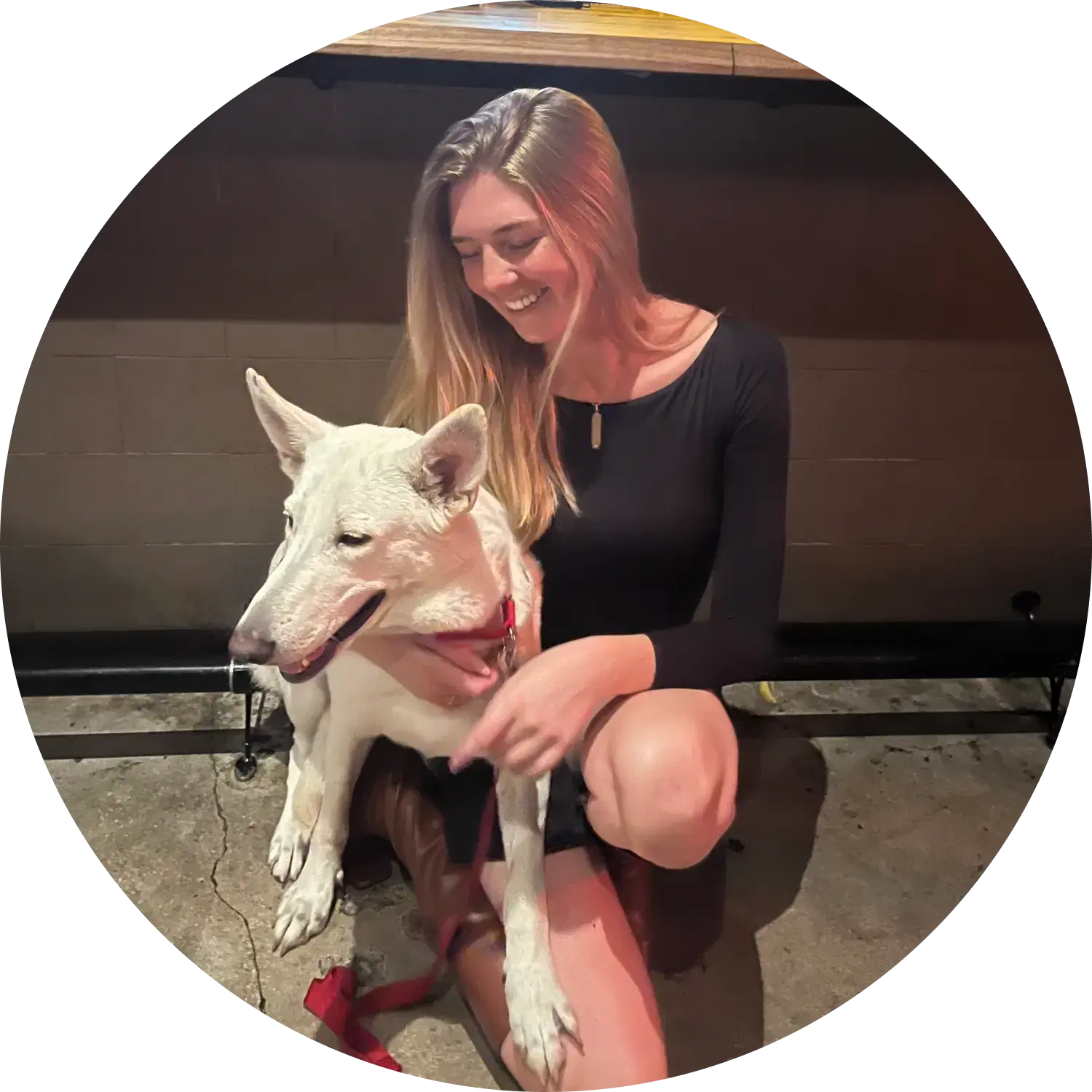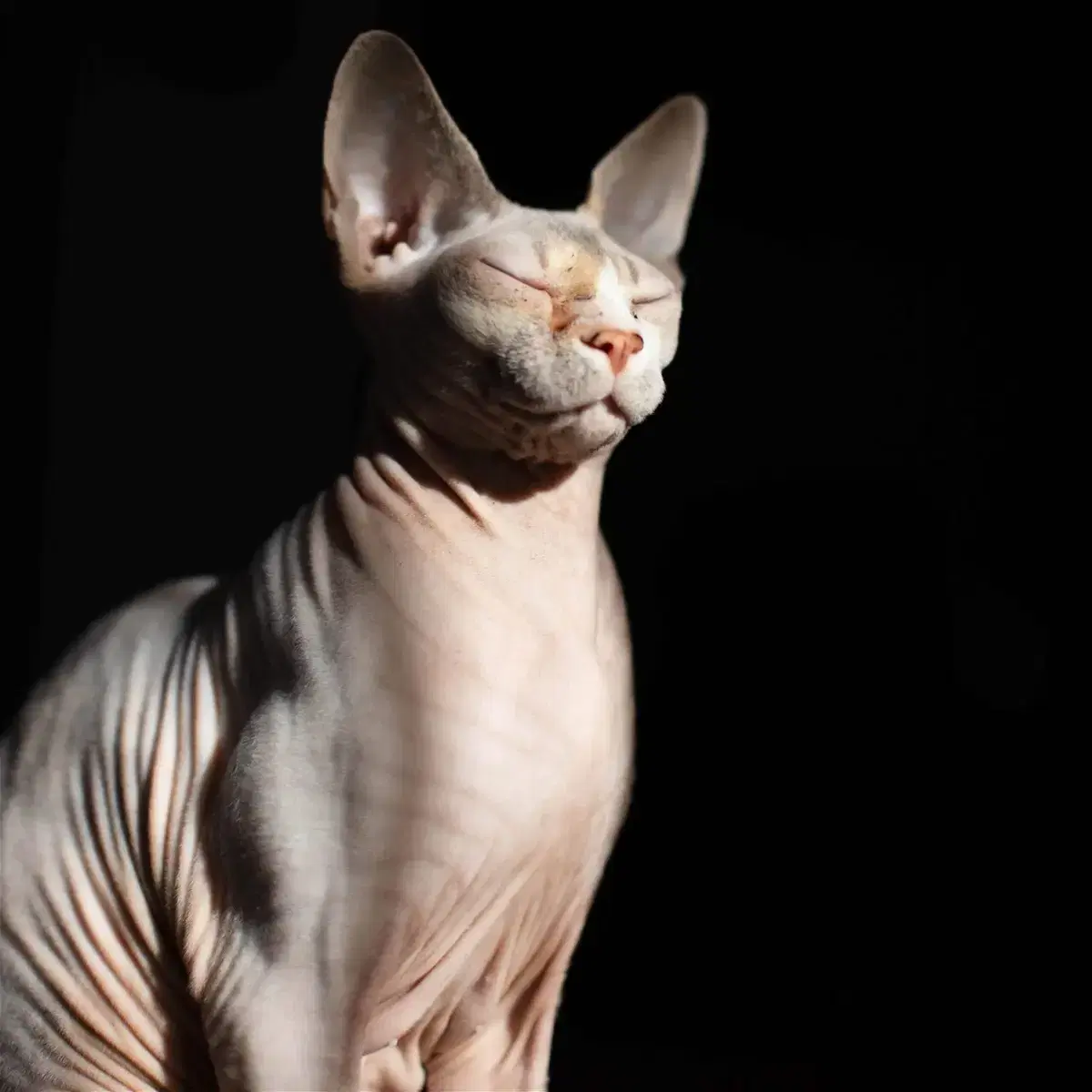Sphynx Cats have a lot to offer their pet parents with their irresistible purrs and preference for curling up next to you (probably to stay warm).
These hairless cats look the way they do due to a naturally occurring genetic mutation. The sphynx breed occurred through selective breeding starting in the 1960s.
If you’re wondering what to know before getting a sphynx cat or already have one, you need to watch out for a few health conditions. Take a look at our guide for how to care for a sphynx cat.
Most Common Sphynx Cat Problems:
Skin problems
Body temperature regulation
Ear infections
Periodontal disease
Hypertrophic cardiomyopathy (HCM)
Hereditary myopathy
What are Common Sphynx Cat Health Problems?
Skin Problems
Sphynx cats need help keeping their skin healthy and free of excess oils. Excess oils create skin problems like urticaria pigmentosa which creates red spots on the skin, and cutaneous mastocytosis, issues with ear wax, and infections. Your vet can genetically test your sphynx for urticaria pigmentosa as it often goes underdiagnosed in cats.
The quick answer to the oil problem: High-quality food. The better the food, the less oil your sphynx will produce-which also helps protect your cat from getting skin oils on your furniture. These cats also need intermittent baths (not too often-you could dry out their skin!) to remove oil and dirt. Look for special cat shampoos that can help manage these oils.
Sphynx cats also need protection from the sun, which ultimately means you shouldn’t let them go outside.
Signs of sphynx cat skin spots and skin problems:
red spots on the trunk or thorax
skin lesions
greasy, itchy seborrhea patches
Body Temperature Regulation Issues
One, if not the most common sphynx cat health issue is not being able to regulate body temperature. As you might imagine, these cats get chilled easily because of their lack of fur. Special cat outfits, heated cat beds, and covered cat beds might make sense for keeping your Sphynx warm.
Again, sphynx cats should not go outside due to their trouble keeping warm and regulating their body temperatures.
Signs your sphynx cat is cold:
your cat’s body is cold to touch (check paw pads and ear tips first, extremities are the first to get cold)
avoids walking on hardwood or tile floors
won’t get off hotspot or human for warmth
shivering
lethargy
Ear Infections
Pet parents must keep their sphynx cat’s ears clean and free of excess wax to avoid ear infections.
Use regular gauze, cotton balls, makeup rounds, or tissues to clean and dry the inside of your cat’s ears. Stay away from cotton swabs, which could damage your cat’s eardrums.
Signs and symptoms of ear infections in cats:
yellow or black discharge
head tilting
swollen or red ear canal
difficulty hearing
Periodontal Disease
Sphynx cats also need regular dental cleanings because they have challenges with their teeth.
Look for bad breath, tooth discoloration or tartar, difficulty eating, drooling, pawing at the teeth, or red, swollen, or bleeding gums. Luckily, periodontal disease is reversible with proper changes to dental care. Regular teeth cleanings, removing plaque, and potentially antibiotics (if necessary) can help your feline recover. If the gingivitis is not controlled it may become periodontitis, which is irreversible.
Signs of dental disease in cats:
gingivitis and inflamed gums
bleeding gums
bad breath
yellowing or darkening teeth
drooling
Hypertrophic Cardiomyopathy
Hypertrophic cardiomyopathy (HCM) is another common sphynx cat disease. Sphynx cats are prone to hypertrophic cardiomyopathy, a heart disease in which the heart muscle becomes abnormally thick.
Additionally, blood clots may form in the heart muscle blocking proper blood flow to that region, weakening your cat’s heart over time. Your veterinarian should screen for heart issues at every checkup because the disorder can develop as your cat grows older.
An echocardiogram can confirm whether your sphynx cat has hypertrophic cardiomyopathy. Your veterinarian can also do blood tests, an electrocardiogram, chest X-ray, cardiac catheterization, or an MRI to diagnose hypertrophic cardiomyopathy.
Signs of HCM and sphynx cat heart problems:
labored breathing
fluid buildup in lungs
thromboembolism
hind leg paralysis
acute pain in hind legs
Hereditary Myopathy
Hereditary myopathy, also known as Devon Rex myopathy, is a generalized muscle weakness caused by a defect in how nerves transmit signals to the muscles and can seriously affect sphynx cats. Cats with HCM end up unable to walk and exercise due to muscle weakness.
Look for abnormal head-bobbing or a complete inability of your cat to raise its head properly or a high-stepping forelimb gait. You may see these signs more often due to stress or excitement. Signs of muscle weakness can show up from three to 23 weeks. Some cats with megaesophagus may experience ongoing problems swallowing and may choke to death.
A veterinarian can collect muscle tissue samples under anesthesia and can assess these samples for abnormalities for diagnosis.
Symptoms of hereditary myopathy in cats:
head-bobbing
inability to raise the head
muscle trembling
tiring easily
collapse
How Long Do Sphynx Cats Live?
These medium-sized cats, which weigh between 6 to 12 pounds, have an average lifespan of 8 to 14 years. With proper veterinary care, your pet can live a long and healthy life.
Note that sphynx cats are generally healthy, but when they develop certain conditions, including hypertrophic cardiomyopathy or hereditary myopathy, it can cut your pet’s life span considerably.
It’s really important to vet your veterinarian before you take your sphynx cat to a particular veterinary practice. Make sure you know whether your veterinarian knows a lot about sphynx cats and has experience dealing with their specific needs.
Cat Insurance For Sphynx Cats
Because your sphynx cat can play a special role in your family, you want to help your pet get the right veterinary care. Sphynx cats may also require a little bit more attention and care than other breeds. Find 20 tips on how to care for a cat.

The resident animal enthusiast at Spot. I have a lifetime of pet parent experience. If it has fur, feathers, or scales, I’ve probably shared my home with it. I aim to be a reliable source, blending experience with a dedication to the well-being of pets.












